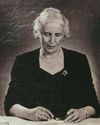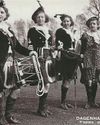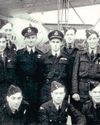
All writers, it can be assumed, secretly fantasise about achieving what perhaps might be seen as a form of literary immortality: the dream of seeing their work continuing to be read long after their death.
Not so Kingsley Amis. Like his son, Martin, Kingsley was a celebrated and successful author, but always denied having any interest in what happened to his own books in the future. According to Martin: “My father used to say he didn’t care at all about posterity as he wouldn’t be around to enjoy its good opinion. ‘It’s no bloody use is it to me!’ he’d say.” But Martin, for one, didn’t believe him. “All that matters [to writers] is whether you’re read after you’re dead,” he said in 1996. “And it keeps writers honest, because it’s this big important question and they know they’ll never get a glimpse of it.”
We do not know whether Martin Amis, who died in May at the age of 73, will still be read long into the future. All that can be said for certain is that books such as The Rachel Papers (1973), Success (1978), Money (1984), London Fields (1989) and Time’s Arrow (1991) ensured he became one of the best known and successful British novelists of the late 20th and early 21st centuries. He became a literary superstar, “the Mick Jagger of literature” according to his friend Ian McEwan, and the coolest of a bunch of new, young writers who emerged in the 1970s, a gang who included Christopher Hitchens, Salman Rushdie, Julian Barnes and McEwan himself.
هذه القصة مأخوذة من طبعة August 2023 من Best of British.
ابدأ النسخة التجريبية المجانية من Magzter GOLD لمدة 7 أيام للوصول إلى آلاف القصص المتميزة المنسقة وأكثر من 9,000 مجلة وصحيفة.
بالفعل مشترك ? تسجيل الدخول
هذه القصة مأخوذة من طبعة August 2023 من Best of British.
ابدأ النسخة التجريبية المجانية من Magzter GOLD لمدة 7 أيام للوصول إلى آلاف القصص المتميزة المنسقة وأكثر من 9,000 مجلة وصحيفة.
بالفعل مشترك? تسجيل الدخول

Animal Magic
Hilary Middleton recalls a children's author whose tales are still enjoyed today

BACK IN TIME WITH COLIN BAKER
BoB's very own Time Lord prepares for an alternative to panto, recalls his early reading choices and having his scenes cut from two cutting edge comedies

Marvels in Miniature
Claire Saul learns about the exquisite works on display at a new exhibition being held at a historic Georgian mansion

The Last Post
Michael Foley witnessed the end of an era

The Box of Delights
Chris Hallam remembers how his Christmas 40 years ago was lit up by a magical television drama

The Queen of Stage and Screen
Chris Hallam pays tribute to actress Dame Maggie Smith

Other 07
Jonathan Sothcott looks at the seven Sir Roger Moore films that you should have in your collection

In the Best Possible Taste
Derek Lamb remembers the wireless wizardry of Kenny Everett

POSTCARD FROM BUCKINGHAMSHIRE
Bob Barton remembers a ghostly train journey, enjoys some wassailing and fulfils a long-held ambition of attending a lawnmower festival

MERCY MISSION
John Greeves recounts the remarkable exploits of Sunderland flying boat T9114